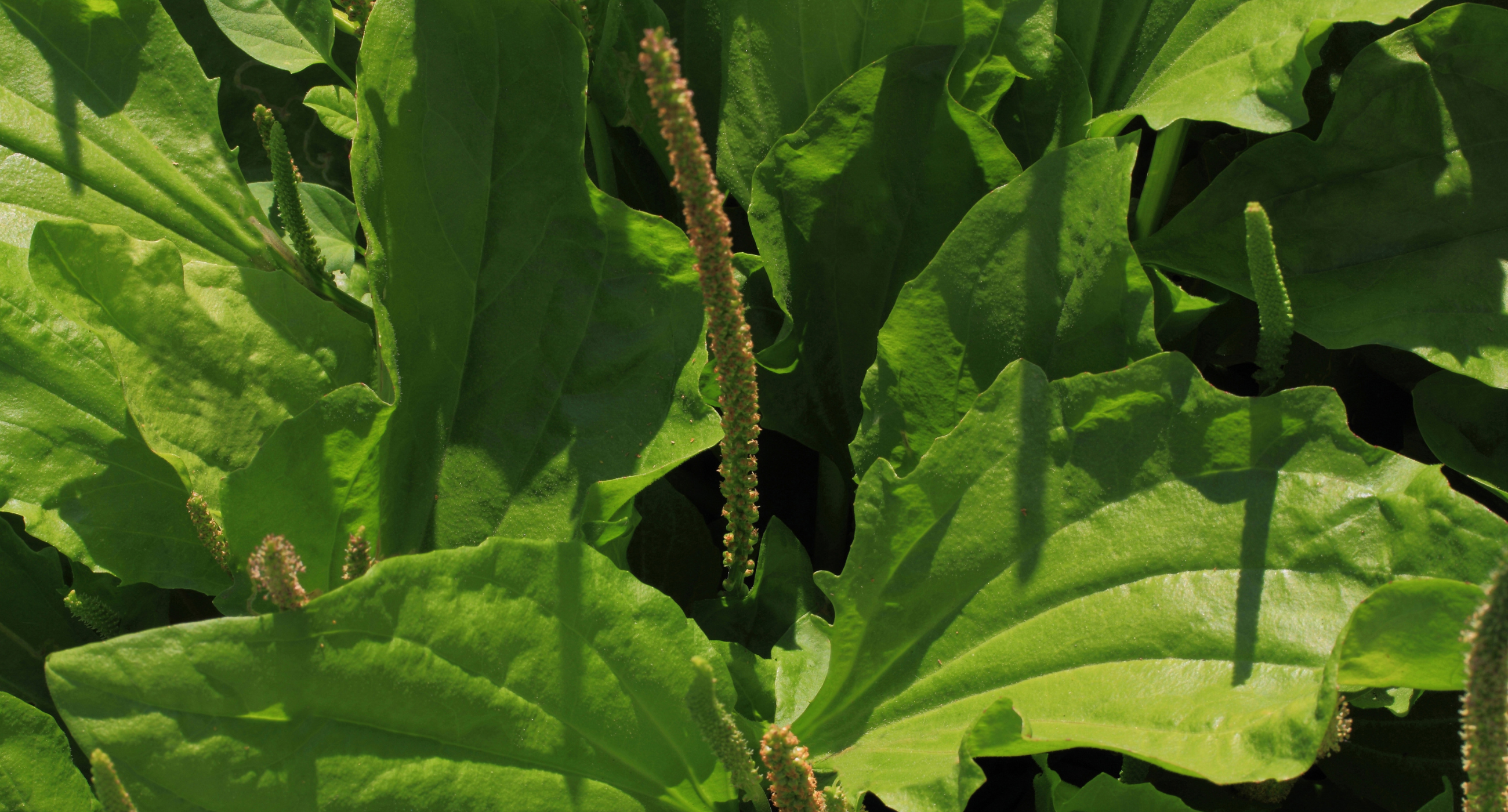
Plantain
Scientific Name: Plantar Major
Herbal Profile: Plantain Leaf (Plantar Major)
Botanical Information:
- Botanical Name: Plantago major
- Family: Plantaginaceae
- Common Names: Broadleaf plantain, Greater plantain, Common plantain, White man's foot
Parts Used:
- Leaves
- Seeds
Active Constituents:
- Iridoid Glycosides: Aucubin, catalpol
- Flavonoids: Apigenin, luteolin
- Tannins: Astringent properties
- Polysaccharides: Mucilage, which provides soothing properties
- Silica
- Vitamins: A, C, K
- Minerals: Zinc, potassium, calcium, magnesium
Medicinal Properties:
- Anti-inflammatory: Reduces inflammation and swelling.
- Antimicrobial: Fights against bacteria, viruses, and fungi.
- Astringent: Helps to tighten tissues and reduce bleeding.
- Demulcent: Soothes irritated tissues, especially mucous membranes.
- Expectorant: Helps in clearing mucus from the respiratory tract.
- Vulnerary: Promotes wound healing.
Uses:
- Wound Healing: Applied topically to cuts, bruises, and insect bites to promote healing and reduce inflammation. Plantain leaves can be used as a poultice, fresh or dried, to draw out toxins from stings or bites.
- Respiratory Health: Used as a tea or syrup to relieve coughs, bronchitis, and other respiratory conditions. The expectorant properties help clear mucus, making it useful for colds and flu.
- Digestive Health: Infusions or extracts can soothe the digestive tract and help with conditions like gastritis, ulcers, and irritable bowel syndrome (IBS). The mucilage content provides a protective layer on the mucous membranes.
- Skin Conditions: Used to treat skin conditions like eczema, psoriasis, and rashes. The astringent and anti-inflammatory properties help reduce skin irritation and promote healing.
- Anti-allergic: Helps to reduce allergic reactions and histamine response. The anti-inflammatory properties can alleviate symptoms of allergic rhinitis and other allergic conditions.
- Urinary Tract Health: Can be used to support urinary tract health and alleviate conditions like cystitis and urinary tract infections (UTIs).
- Hemorrhoids: The astringent and anti-inflammatory properties make plantain useful in the treatment of hemorrhoids. A poultice or ointment can be applied to the affected area to reduce pain and swelling.
Preparation and Dosage:
- Tea/Infusion: 1-2 teaspoons of dried leaves per cup of boiling water, steep for 10-15 minutes, drink 2-3 times daily. This preparation is often used for respiratory and digestive issues.
- Tincture: 1-4 mL of a 1:5 tincture in 25% alcohol, taken 3 times daily. Tinctures are more concentrated and can be used for a variety of internal conditions.
- Poultice: Fresh leaves can be crushed and applied directly to the skin or wounds. This is effective for insect bites, stings, and skin irritations.
- Syrup: Plantain leaf can be made into a syrup for respiratory issues. The syrup is soothing for sore throats and coughs.
- Ointment/Salve: Infused plantain leaves can be used to make an ointment or salve for topical application on wounds, rashes, and hemorrhoids.
Precautions:
- Generally considered safe for most people when used appropriately.
- Some people may experience allergic reactions or skin irritation.
- Pregnant and breastfeeding women should consult a healthcare provider before use.
- Always ensure proper identification of the plant before use to avoid confusion with other species.
Harvesting and Storage:
- Harvesting: Leaves can be harvested throughout the growing season; seeds are collected in late summer or early fall. Young leaves are often preferred for medicinal use.
- Storage: Dried leaves should be stored in an airtight container away from light and moisture to preserve their medicinal properties. Properly stored, dried leaves can retain their potency for up to a year.
